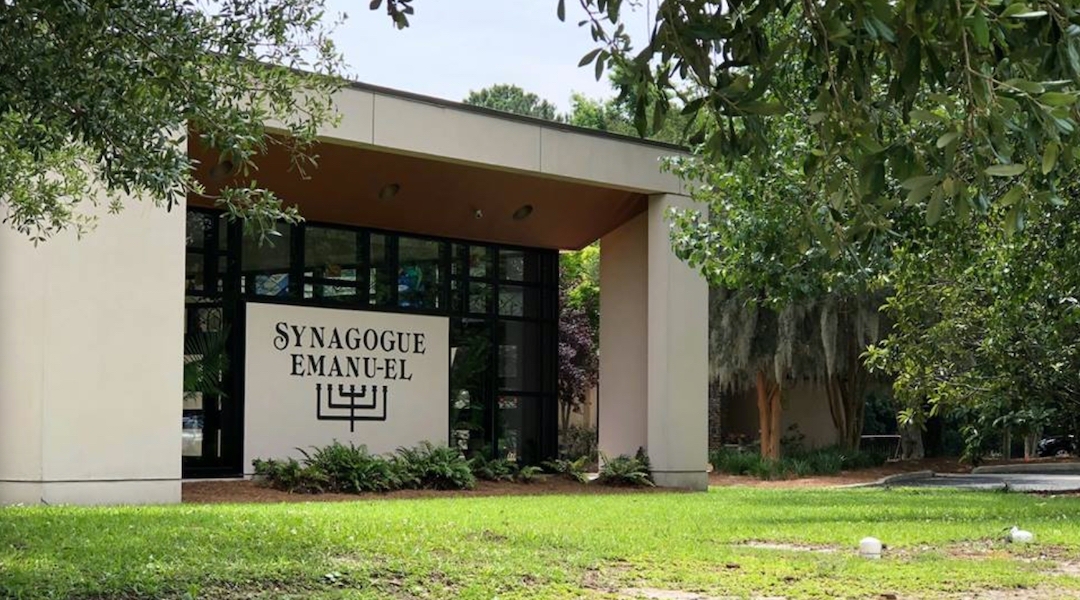Trump demands that states let synagogues and other houses of worship reopen
Published May 22, 2020
(JTA) — President Donald Trump wants synagogues and other houses of worship to open their doors.
The president went on the offensive Friday, telling governors that he would override them to require houses of worship to be allowed to reopen after closing to stop the spread of the coronavirus. (He does not have that authority.)
“Today I’m identifying houses of worship — churches, synagogues and mosques — as essential places that provide essential services,” Trump said during a White House news conference. “Some governors have deemed liquor stores and abortion clinics as essential, but have left out churches and other houses of worship. That’s not right.”
The Centers for Disease Control has been preparing guidelines on how houses of worship can reopen safely, but the Trump administration has delayed its release.
How much Trump’s pressure might affect synagogues is unclear, even if governors relax rules for houses of worship. Many synagogues were quick to close once the pandemic hit and have remained closed even as states have reopened.

Like many other Jewish communities, Synagogue Emanu-El in Charleston remained closed even after South Carolina allowed houses of worship to reopen. (Google Street View)
That was true in Georgia, Texas and South Carolina last month and again this week in Massachusetts when the governor there added houses of worship to the first phase of the state’s reopening plan. And the Orthodox Union reiterated its guidance this week to wait at least two weeks after reopening before holding in-person religious services, to make sure cases do not rise.
The leader of the Reform movement released a statement in response to Trump’s remarks saying the country’s largest Jewish denomination “will continue to look to the wisdom of medical professionals to guide us on when reopening our synagogues can be done safely in keeping with our values.”
“While we long to gather in person, we believe that there is no higher value than pikuach nefesh, saving a life,” said Rabbi Rick Jacobs, president of the Union for Reform Judaism.
But Trump’s announcement reflects deepening tension over In some Orthodox communities, where online services are not possible on Shabbat and do not allow people to fulfill certain obligations during the week, tension has deepened over whether to allow limited communal prayer.
In Cleveland, where rabbis openly disagreed with each other last week over whether to allow outdoor prayer services, dozens of local Jewish doctors this week issued an open letter emphasizing that the coronavirus can spread even if people all wear masks.
And after New York state began allowing gatherings of up to 10 people this week, a group of 27 rabbis on Long Island sent a letter to congregants reiterating their decision to wait at least 14 days before resuming services. They had sent an initial letter last week amid disagreements over whether to allow services to resume outdoors with participants joining together from their own yards and porches.
In a few places, some synagogues are indeed taking steps back toward communal prayer. Some Atlanta-area Orthodox synagogues held services in their parking lots this week, the Forward reported. In Brooklyn, the New York Times covered a prayer service with 10 men on Friday at the Aliya Institute in Crown Heights. And in South Florida, one Orthodox rabbi, Efrem Goldberg, penned an emotional ode to his synagogue, Boca Raton Synagogue, outlining what its outdoor services would look like.
“This coming week, if all continues to go well, we will return to your campus, but we still cannot enter your premises,” he wrote. “We will be together in makeshift minyanim, but we will still be separated by at least 8 feet. Instead of hugs or handshakes, we will be lucky to say hi. Instead of a reunion, we will experience a tease. Instead of feeling we are back, we will still feel like we don’t know where we are. Instead of dancing, we will be distancing. Rather than see into each other’s hearts we will be staring at one another’s masks.”
Next week could be a potentially pivotal moment for the reopening of synagogues. Shavuot, one of the major Jewish festivals, begins May 28 and some synagogues are preparing for late-night study and prayer to take place in person. Chabad of South Broward, located near Goldberg’s synagogue in Florida, distributed a registration form that asked potential attendees to commit to complying with strict health rules.
“Our community’s health and wellbeing is our top priority and therefore [we] are requiring these strict guidelines be followed with no exceptions in order for the Shul to im’H continue to open,” the survey said, using an abbreviation for the Hebrew words meaning “if it will be God’s will.”















